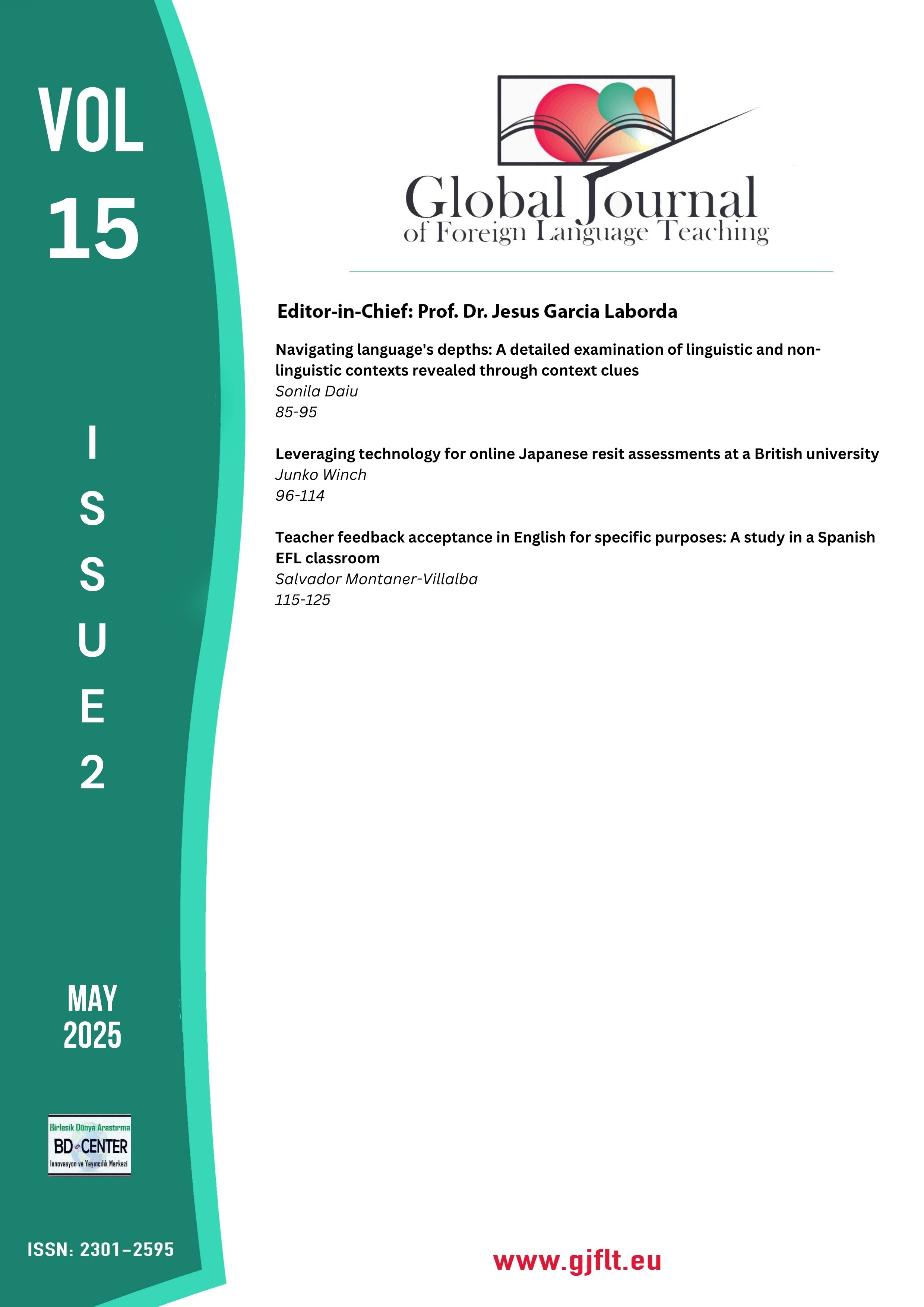Teacher feedback acceptance in English for specific purposes: A study in a Spanish EFL classroom
Main Article Content
Abstract
This study investigates the role of teacher feedback in improving speaking skills in English as a Foreign Language (EFL) classrooms, focusing on Vocational Training students in Spain. Despite the importance of feedback, large class sizes and examination-driven curricula often limit its availability, creating a gap in effective speaking skill development. This study aims to determine whether teacher feedback can mitigate these challenges by analyzing speaking tasks in an English for Specific Purposes (ESP) classroom, specifically among Marketing students. Using recorded and transcribed classroom interactions of seven students, the findings reveal a strong dependence on teacher feedback, minimal peer feedback, and a lack of learner autonomy. These results highlight the crucial role of teacher feedback in student progress while emphasizing the need for strategies that encourage peer interaction and independent learning. The study underscores the necessity of fostering learner autonomy in EFL classrooms, suggesting that future research should explore methods to integrate more student-led feedback mechanisms.
Keywords: Autonomy in learning; EFL; speaking skills; teacher feedback; vocational training
Downloads
Article Details

This work is licensed under a Creative Commons Attribution-NonCommercial-NoDerivatives 4.0 International License.
Authors who publish with this journal agree to the following terms:- Authors retain copyright and grant the journal right of first publication with the work simultaneously licensed under a Creative Commons Attribution License that allows others to share the work with an acknowledgement of the work's authorship and initial publication in this journal.
- Authors are able to enter into separate, additional contractual arrangements for the non-exclusive distribution of the journal's published version of the work (e.g., post it to an institutional repository or publish it in a book), with an acknowledgement of its initial publication in this journal.
- Authors are permitted and encouraged to post their work online (e.g., in institutional repositories or on their website) prior to and during the submission process, as it can lead to productive exchanges, as well as earlier and greater citation of published work (SeeThe Effect of Open Access).
